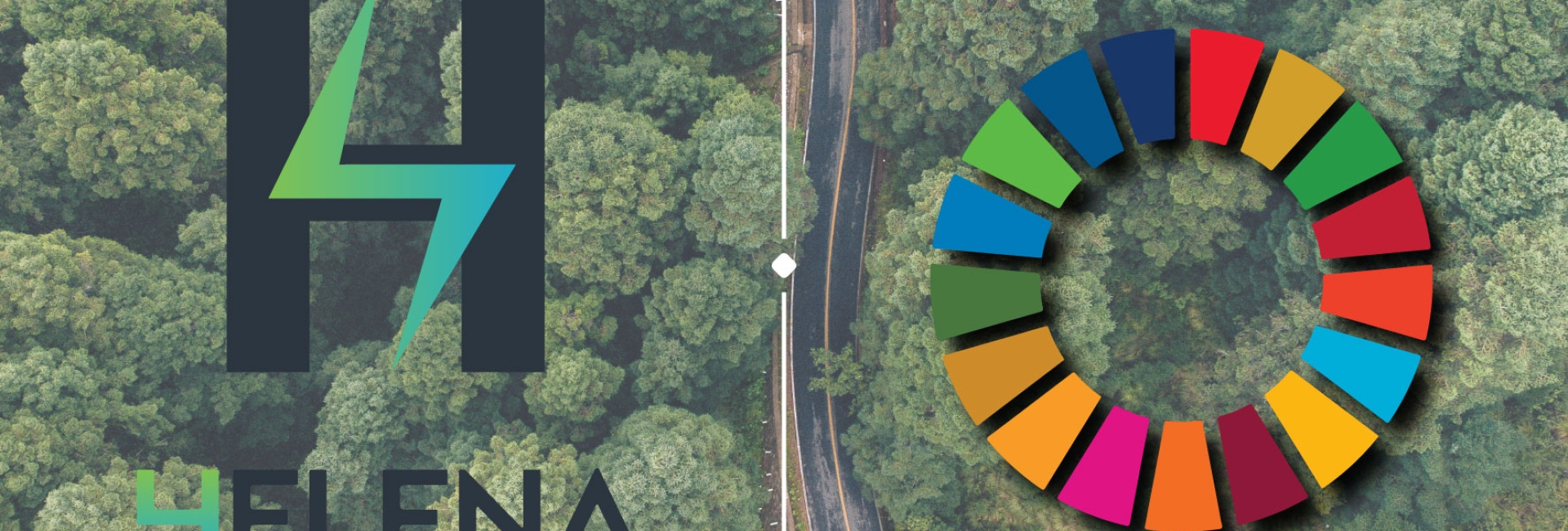
HELENA’s Project impacts on the future of Europe and society.
Europe is pursuing, through the Sustainable Development Goals (SDGs) and, like all other regions, new paths towards the future that will ensure the well-being of the planet and the people who inhabit it. Initiatives such as the HELENA Project and its halide-based solid-state batteries contribute to achieving these goals. But, what impact will this project have not only on the future of mobility, but also on society’s?

In 2015, world leaders agreed to define an agenda for development, composed of 17 goals that would act in favor of people, prosperity, and the planet. The 2030 Agenda, composed of the 17 Sustainable Development Goals, represents a historic milestone in the collaborative struggle to eradicate poverty, promote prosperity, protect the environment, and curb climate change.
We are witnessing firsthand how, even today, there is great dependence on energy sources that are far from sustainable, both in terms of their impact on nature and the methods used for their exploitation and extraction. To face and overcome this great challenge, new generations of batteries and other energy storage systems are intended to play a fundamental role. With this in mind, solid-state batteries in general, and halide solid-state batteries like the ones developed within the HELENA Project in particular, are expected to contribute to the following SDGs:
SDG 7 – Ensure access to affordable, reliable, sustainable and modern energy for all
Although it is becoming less and less frequent, it used to be quite common for consumers and companies not to believe in the viability of renewable energies. Among their arguments in favor of fossil fuels was the idea that the first alternative was too expensive to implement. What about the CO2 emissions from the combustion of fossil fuels? Is this not a terribly expensive price to pay for the society of the future?
The HELENA project, through research and with the help of each of its 15 members and the European Commission, contributes to the definition of an affordable for all, sustainable energy network that meets the needs of an increasingly extensive and intensive market. In this case, through high-value technology that could mean the definitive electrification and modernization of transport.
SDG 8 – Promote sustained, inclusive, and sustainable economic growth, full and productive employment, and decent work for all.
To better understand the impact of the industry linked to renewable energies or batteries, it is important to analyze the context. Before COVID-19, the economy was immersed in a process of progressive slowdown, growing GDP per capita by just 1.5% during 2019. The arrival of the pandemic stopped the world economy, and, with it, millions of jobs were destroyed (many of them in low value-added sectors).
Several prestigious international organizations, such as the International Renewable Energy Agency (IRENA), emphasize the importance of accompanying an increase in the number of jobs with decent working conditions for all, ensuring the protection of the most vulnerable. If it succeeds, it is expected that by 2030 we will have gone from the current 12 million jobs to more than 38 million jobs.
Another aspect that can be extrapolated to the case of Europe and the HELENA Project is the interest in setting up supply chains on the continent itself. The pandemic revealed the heavy dependence on the Asian market and the environmental impact of delivering the product. With all this, this initiative, and thanks to the specialization of each of the members in the key stages of the halide-based solid-state battery supply chain, is getting closer to achieving the "Boom" of the electric vehicle and aviation in Europe.
SDG 9 – Build resilient infrastructure, promote inclusive and sustainable industrialization and foster innovation.
A functioning and resilient infrastructure is the foundation of every successful community. Committed to upgrading industries and infrastructures that make us meet future challenges, HELENA Project develops such an innovative sustainable technology like halide solid state batteries.
How can this promote inclusivity or foster innovation? If HELENA Project sets a milestone helping industry to find new, sustainable and, moreover, cheaper energy sources, the final cost of the product will also be reduced significantly. Hence, the price of, for example, an electric car, will diminish. This can make us deduce that, in the future, and with more alternatives to fossil fuels available, electric cars and electric airplanes will be more accessible for everybody.
This will bring prosperity, creating jobs and making sure that we build stable and prosperous societies around the globe.
SDG 11 – Make cities and human settlements inclusive, safe, resilient, and sustainable.
Did you know that it is expected that, by 2050, almost 70% of the world population will live in urban settlements, accounting for 60-80% of total energy consumption? This uncontrolled growth may derive from exerting pressure on fresh water supplies, sewage, living environment and public health, especially if transport keeps depending on cars.
The HELENA Project will be able to guide cities towards not only by providing specific infrastructure, technology, and services, but also contributing to the strategy that will support the optimization of urban systems. This way, inclusive, safe, sustainable and disaster resilient cities will be created. Thanks to the developed halide solid-state batteries for urban transport application, cities could benefit from them to identify innovative and cost-effective solutions to cross-cutting urban sustainability challenges.
SDG 12 – Ensure sustainable consumption and production patterns.
The exponential increase in world’s population combined with a consumption model based on throw-away consumption, now forces society to use and produce in a more responsible way, as a result of more awareness on this challenge.
The technology developed by HELENA Project bears it in mind. All this, and based on halide, an NMC cathode and a lithium-metal based anode, will result in a longer lifespan and higher power density and safety. This sums up one of the fundamentals of sustainability: Doing more with less.
SDG 13 – Take urgent action to combat climate change and its impact.
Climate change is a real and undeniable threat to our entire civilization. With the planet rebelling, transport is responsible for 27% of total greenhouse gas (GHG) emissions, with road transport and aviation as the main contributors.
Aimed at developing safer and more efficient systems thanks to halide and solid-state batteries, HELENA Project wants to guide Europe on leading this race towards Energy Transition through the electrification of transport. Being aware of the importance that education, innovation and adherence to climate commitments, nothing would make us prouder than setting a milestone that motivates others to follow our path. A path that ends not only in limiting global warming to 1.5 ºC, but also in modernizing infrastructure, creating new jobs, and promoting greater prosperity.
To sum up, the HELENA Project and each of its 15 members that work passionately across Europe to develop a technology that will revolutionize transport as we know it, will support the world in its race towards climate neutrality. On the one hand, by providing Europe with continental-based disruptive technology that will position the continent at the forefront of global Climate Neutrality race. And, on the other hand, by overcoming consumers’ needs in terms of batteries. In this sense, fast-charging, long-lasting, cheaper, and scalable cell manufacturing process will be ensured, so that the necessities of a more sustainable future are fulfilled.